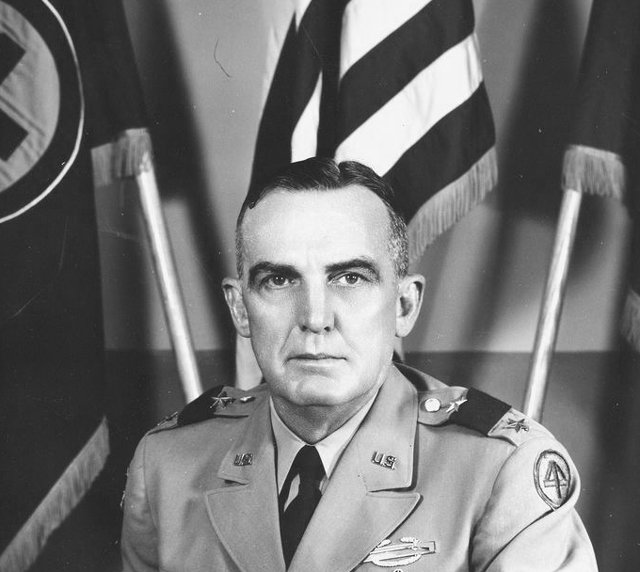Robert Sink

Start of Robert Sink’s career
Robert Sink studied for a year at Duke University (better known as Trinity College) before starting his studies at the US Military Academy at West Point. He graduated in 1927 and finished 174th out of 203 cadets in his class. Sink became a second lieutenant in the 8th Infantry Regiment at Fort Screven, Georgia.
Other regiments in which he subsequently served include the (65th Regiment) in Puerto Rico (1929), the United States School of Chemical Warfare (in 1932) and the “Civilian Conservation Corps”, a job-creation project for unemployed young men at McAlevy’s Fort, Pennsylvania in 1933 before returning to the infantry in the 34th Regiment at Fort Benning, Georgia in 1935.
After being transferred to the Philippines in November 1937 and serving with the 57th regiment at Fort McKinley, Sink returned to the U.S., to the 25th regiment, at Fort Huachua, Arizona, where he served as a company commander.
During the Second World War
In 1940, he was attached to the 501st Parachute Regiment at Fort Benning. Sink was among the 4 per cent of officers in the US Army who had completed paratrooper training, and each year he celebrated his birthday by making a jump. Later, he was the head of the 503rd Airborne Battalion, which soon became a regiment. In July 1942, he was appointed commander of the 506th Airborne Regiment at Camp Toccoa, Georgia; Fort Benning, Georgia and at Fort Bragg, North Carolina. Throughout the war, he commanded this regiment which was nicknamed “Five-Oh Sink”. During the war, he made two combat jumps (on D-Day and during Operation Market Garden, respectively) and led his regiment through the hard-fought battle that would later be remembered as the Ardennes Offensive.
Post-war career
On August 12, 1945, Sink was promoted to deputy commander of the 101st Airborne Division. At the end of the year, he began a new course, the American War College, from which he graduated in June 1949. In January 1951, he became commander of the 7th Division in Korea. He returned to the US and then became commander of the 11th Airborne Division. Finally, he became commander of the 18th Airborne Corps and of Fort Bragg. In May 1958, he was appointed STRAC (Strategic Army Corps) commander. He gave his last orders in Panama. Lieutenant General Frederick Robert Sink retired in 1961. He died four years later.
Robert Sink is best known for the television series Band of Brothers in which his role during World War II is played by Vietnam veteran Dale Dye.
Have you noticed a language or writing error? Please let us know, as this will only improve our reporting. We will correct them as soon as possible. Your personal data will be treated confidentially.
Report error